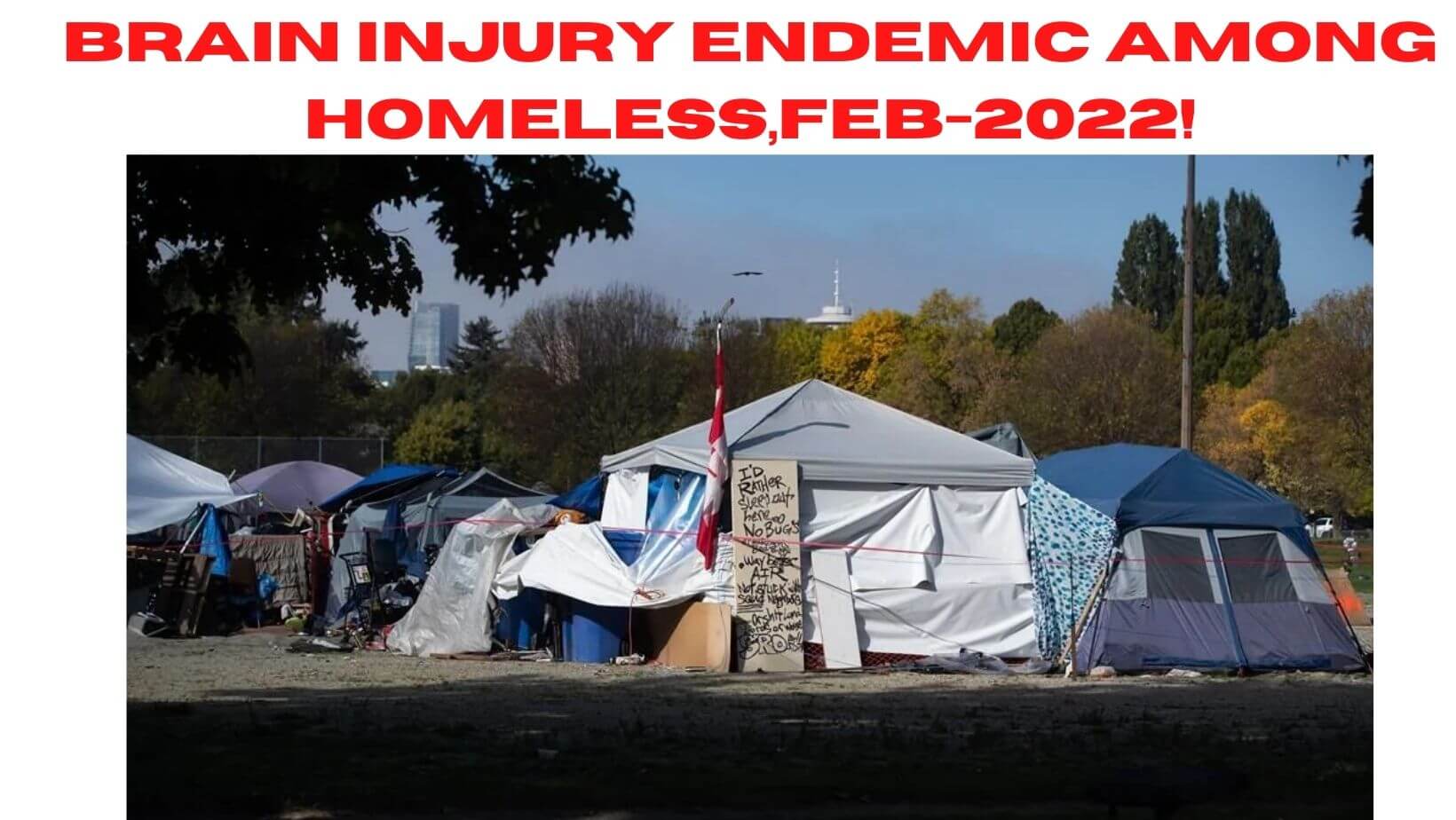
Horrendous mind injury is so normal among the destitute that anticipation ought to be focused on for individuals confronting numerous difficulties and more regrettable results contrasted and “prosperous populaces,” says the lead creator of a review in Vancouver that observed members for manifestations consistently for a year.
Tiffany O’Connor said paces of cerebrum injury are endemic among the destitute and unstably housed so medical care experts and specialist organizations need normalized preparing to evaluate for manifestations of even gentle injury affecting individuals frequently battling with difficulties like psychological sickness and mental hindrance.
“Substance use is really universal. Practically all individuals in this populace that we considered have detailed some kind of liquor or medication use. Major psychological sickness was exceptionally normal, neurological disease was extremely normal,” said O’Connor, a new PhD graduate in Simon Fraser University’s brain science division.
The review, distributed for the current week in the diary EClinicalMedicine-Lancet, included 326 members enlisted from Vancouver’s low-pay Downtown Eastside, a local area court and the crisis branch of a close by clinic.
Analysts who were likewise from the University of British Columbia found 31% of those they met between December 2016 and May 2018 revealed something like one horrendous mind injury during that time.
Almost 10% of cerebrum wounds were connected with substance use among individuals who might have fallen and hit their head or been attacked a short time later, O’Connor said.
The greater part of the members detailed a background marked by mind injury, prompting more noteworthy difficulties, incorporating for those with an actual incapacity and absence of assets to sufficiently recuperate, she said.
Falls represented 45% of the mind wounds, for the most part among destitute females, trailed by attacks at 25%, particularly for men.
“It’s currently known to be basically the populace with the most elevated known rate of horrible cerebrum injury, even above when we consider competitor populaces and other realized populaces like veterans,” said O’Connor, presently a clinical neuropsychologist in the obtained mind injury program at Hamilton Health Sciences.
The review was more thorough than others that have surveyed the pace of awful cerebrum injury among the destitute in light of the fact that members were taught with regards to side effects and met with scientists consistently, bringing about better gauges, she said.
“With the technique enhancements for the pace of horrible mind injury, what we found from this study was a more than 10% higher rate than that is at any point been found in this populace,” O’Connor said of other tantamount examinations in Canada.
For instance, a University of B.C.- drove investigation of the destitute in Vancouver, Toronto and Ottawa found somewhere in the range of 17 and 19 percent of members announced experiencing a cerebrum injury. Be that as it may, the examination distributed in 2017 included followups at regular intervals for almost 1,000 members in every one of the three years of the exploration.
O’Connor said discoveries from the most recent review have provoked analysts to get data on cerebrum injury to the destitute so they access medical care and to medical care suppliers who should bring down the edge for screening them.
Different issues these individuals have regularly turned into the center when they collaborate with the medical care framework or specialist co-ops, without the conceivable basic connection of a cerebrum injury being perceived and tended to, she added.
More exploration is required on blackout and cerebrum injury among the destitute, contrasted and “princely populaces” like competitors, O’Connor said.
“For sports-related blackouts there have been arrangements made the nation over. That necessities to occur on this level for problematically housed individuals,” she said.
“With this information it’s truly about us contacting different analysts, connecting with strategy producers to attempt to accomplish something where we can have a major change the nation over.”
Geoff Sing, leader of the British Columbia Brain Injury Association, said the association has contacted the commonplace Mental Health and Addictions Ministry to give early intercessions like lodging and preparing for organizations offering types of assistance for them.
“These disabilities lead to helpless choices, which lead to say, not paying your lease and being expelled and compelled to be destitute and defenseless,” Sing said.
The service said it has as of late given an aggregate of 103 lodging spaces in Vancouver, Surrey and Abbotsford for those with complex wellbeing and psychological wellness challenges, some subsequent from cerebrum injury.
In any case, Sing said that leaves individuals in the greater part of the area, including Vancouver Island where he resides, in desperate need of lodging.
“Somewhat recently, they’ve lost eight to 10 beds in Nanaimo and have not had the option to supplant them. Along these lines, we’d like the service supporting mind injury by giving additional lodging choices since individuals are getting lost. They are turning into the destitute populace.”
Melissa Vigar, leader head of the Brain Injury Society of Toronto, said a destitute avoidance co-ordinator gives preparing to protect representatives so they perceive indications of cerebrum injury.
“Our financing is just for one individual and their plate is exceptionally full. In any case, we have begun accomplishing more preparation with the City of Toronto staff,” she said, adding vagrants with a mind injury should be obliged very much like any other individual with an inability.
“It’s an undetectable physical issue. It gets seen as they’re lethargic, they couldn’t care less, they’re not investing the energy.”
Also Read-Australia to open borders to vaccinated travelers (Feb- 21)











